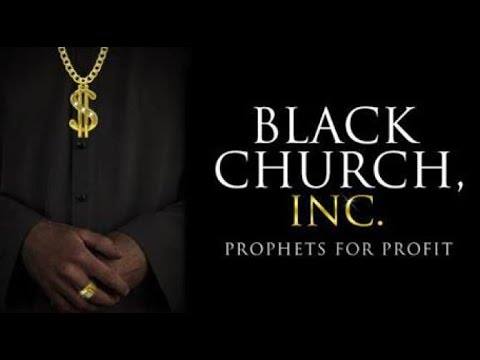The Bible says false prophets will arise (Matthew 24:11). So, it’s not surprising that many prophecies don’t come to pass. How is this possible with so many men and women in the modern church saying they have the gift of prophecy? Well, prophecies do fail. And I have three insights on why it happens.
Let’s get into it.
Table of Contents
- Listen to the Podcast
- 1. Prophets Don’t Know the Mind of God
- 2. Non-Specific Prophetic Messages
- 3. Motivational Messages Disguised as Prophecy
- Summary
- Break Free From the Tithe Deception
Listen to the Podcast
Here’s my position:
Prophecies fail because so-called prophets aren’t hearing from the Most High.
Let me explain.
1. Prophets Don’t Know the Mind of God
A true prophet speaks the mind of God. The Bible teaches us that God is not a man and cannot lie. So, it’s impossible to talk about a prophecy from the Most High that’s false.
Any man or woman of God speaking a prophecy from Father Yah must be true. And if it is true, it must come to pass. Anyone giving a prophecy that fails isn’t speaking the mind of the one true living God.
God hastens to perform his word. What does this mean? God will do what he says he’s going to do. So, a prophetic word from God can’t fail. Additionally, the Bible says God’s word cannot return void and must accomplish what Father Yah desires (Isaiah 55:11).
Again, a person with a prophetic gift who speaks what “thus saith the Lord” will give you a message that must come to pass. Why? Because God’s word doesn’t fail.
A failed prophecy doesn’t come from the mind of God.
R. RENEE
2. Non-Specific Prophetic Messages
A true prophet of God delivers a specific message to an individual or group. For example, Moses gave Pharaoh a prophecy. He told him Egypt would suffer seven plagues if he didn’t free the Hebrew Israelites (Exodus 7-12).
Jeremiah prophesied Jerusalem’s destruction (Jeremiah 25:2, 9-11). In 586 or 587 BC, the Babylonians destroyed Jerusalem.
The Angel Gabriel gave Mary a prophecy. He tells her she’ll give birth to a son and provides detailed information about her son (Luke 1:26-38). Angel Gabriel says the son will:
- Be named Jesus
- Be called the Son of the Most High
- Sit on the throne as his father, David
- Reign over Israel forever, and
- Have a never-ending kingdom
The key here is that each of these prophecies was specific. Why does this matter? Many self-proclaimed prophets in the Christian church give believers general prophecies that apply to anyone.
For example, let’s look at a predominantly black church. And a fake prophet says this:
The Lord revealed that someone here is suffering from high blood pressure and diabetes.
This isn’t prophetic.
Why?
Because 14.6% of African-Americans have diabetes, and 41% have high blood pressure. So, it’s likely that several people in that church have either diagnosis or both.
A church member who has that diagnosis may think this person is prophetic. What’s the point? Anyone can sound prophetic when they share a general message that can apply to almost anyone.
3. Motivational Messages Disguised as Prophecy

There are so-called prophets giving people motivational messages. They call them prophecies. They’re telling people what they want to hear. The Apostle Paul calls this satisfying “itching ears” (2 Timothy 4:3).
These false prophets don’t reveal what people need to hear. When we look at the prophetic messages of God, they were positive prophecies and prophetic warnings.
For example, several biblical figures received positive prophecies. The Most High promised:
- Abraham’s land (Genesis 12:1,7)
- Abraham’s descendants (Genesis 17:5)
- David was a descendent who would reign forever (2 Samuel 7:12-16)
In other instances, the prophets of the Most High delivered dire warnings. Jeremiah was imprisoned when he spoke out against ancient Israel’s idolatry. He also told them they would be destroyed for worshiping other gods (Jeremiah 38).
Isaiah warns ancient Israel about six plagues (Isaiah 28-33). There were promises of punishment (Amos 3:1-2).
God’s people didn’t like prophetic warnings.
Why?
Because the prophets were telling them to change their ways. And this meant giving up things they wanted.
What often takes place in the modern-day church? Believers receive motivational messages disguised as prophecies. These so-called prophets tell people what they want to hear.
Why?
It makes people feel good. When believers feel good, it’s easier to get tithes and offerings.
A man or woman of God who only gives the church feel-good prophecies isn’t representing the Most High. They will make false prophecies if they don’t fully represent God.
Beware of church prophets who always tickle your ears.
R. RENEE
Summary
Prophecies don’t always come to pass. Why is this? There are a few reasons. One, there are prophets. Some prophets aren’t speaking the mind of God. How do we know? Because the Bible teaches us that God can’t lie. So a word from God is always accurate.
Two, a prophetic word must come to pass. According to Scripture, God hastens to perform his word, and his word can’t return void. With that said, a prophet will deliver messages that will manifest.
Three, God-inspired prophecies are specific to persons, places, and things. God doesn’t send prophets to share general messages that apply to any and everybody. In other words, a true prophet will tell you something about your circumstances that he or she couldn’t possibly know.
Finally, a prophetic message isn’t always positive, upbeat, or motivational. God often uses prophets to deliver warnings, directives, or commands many believers may not like. So, beware of church prophets who always tickle your ears.
There you have it…three reasons why prophecies fail.
Break Free From the Tithe Deception

Discover the truth about tithes the church doesn’t want you to know. Go here.
Source: Controversial pastors’ on the rise in Nigeria amid economic hardship








